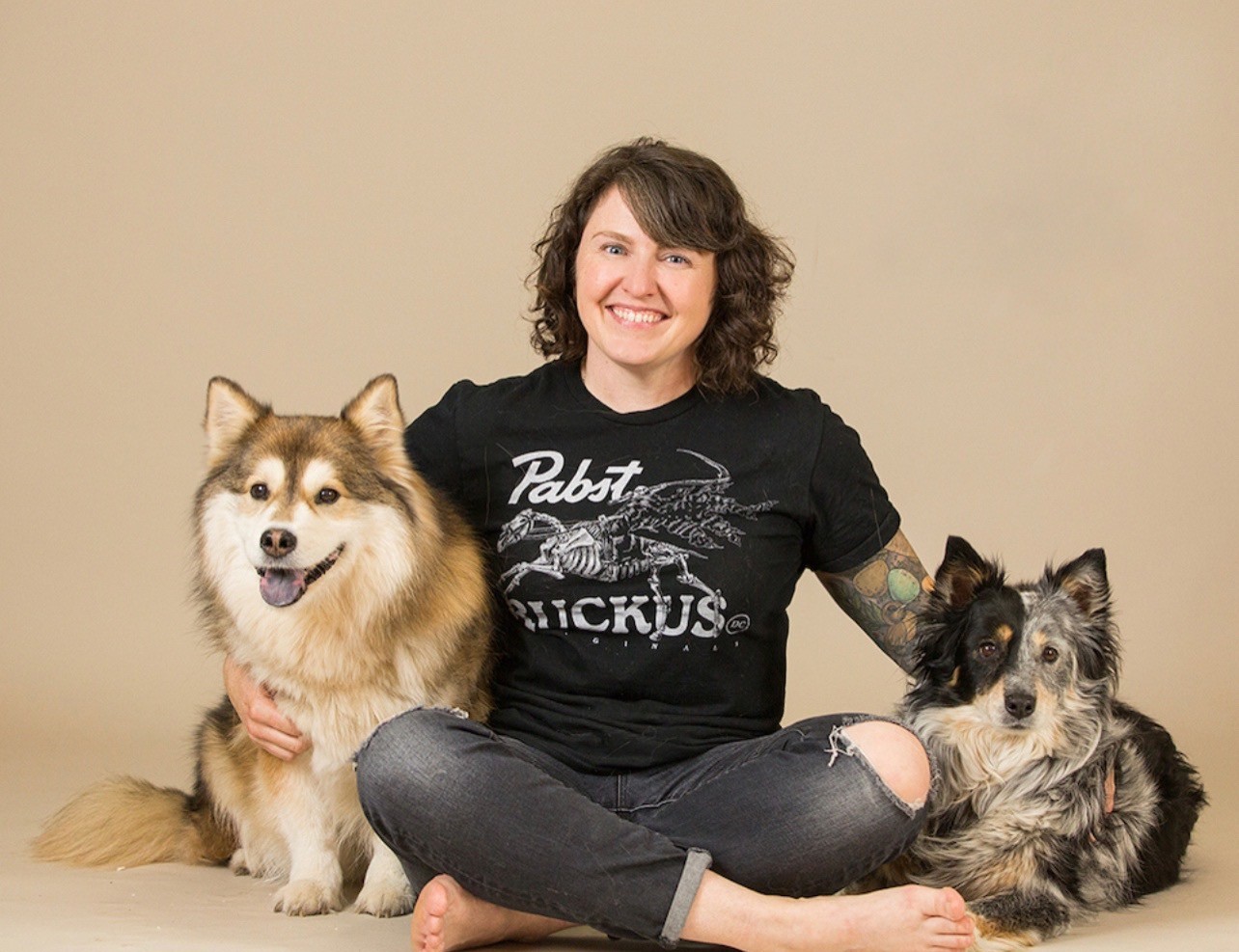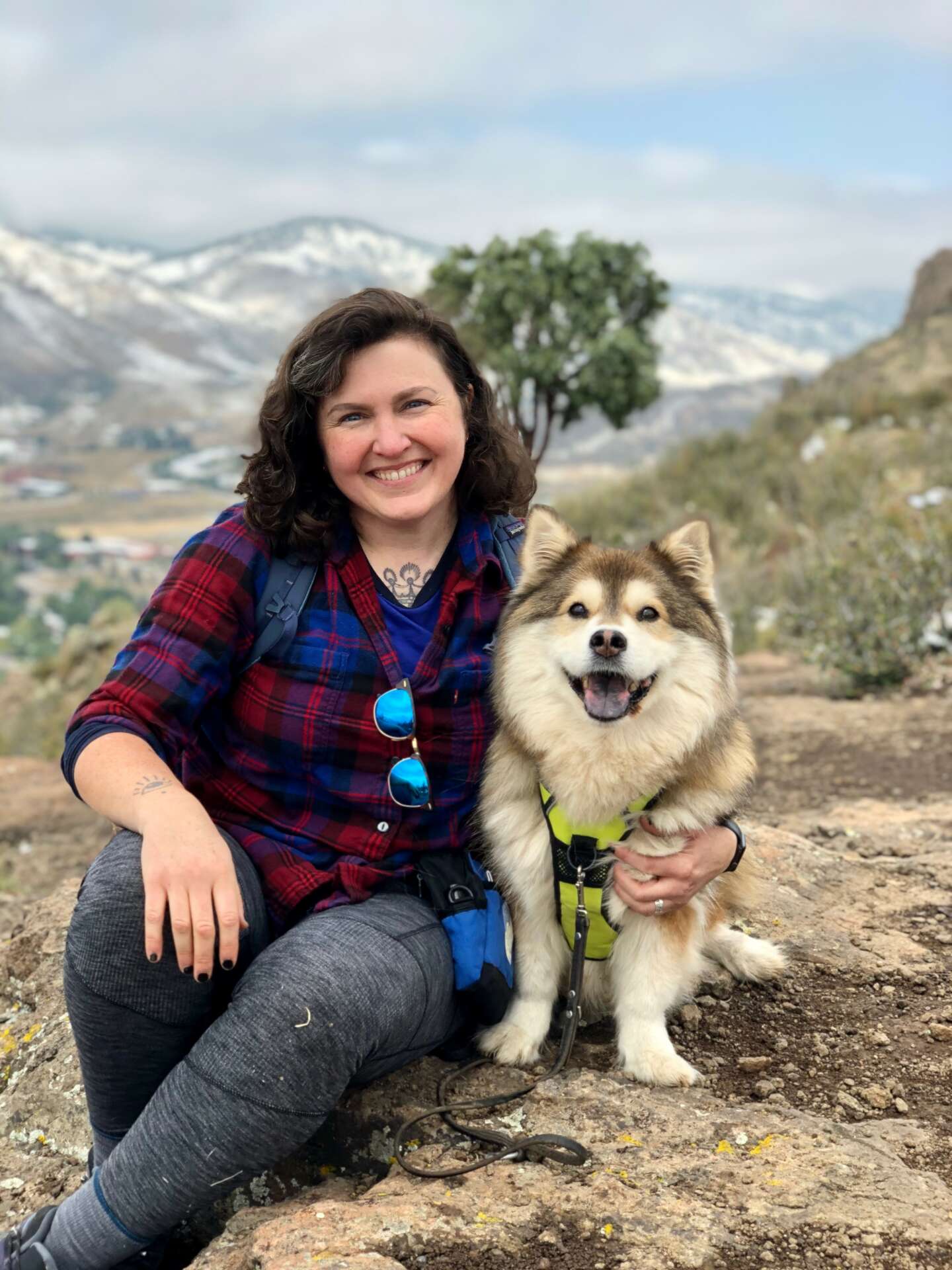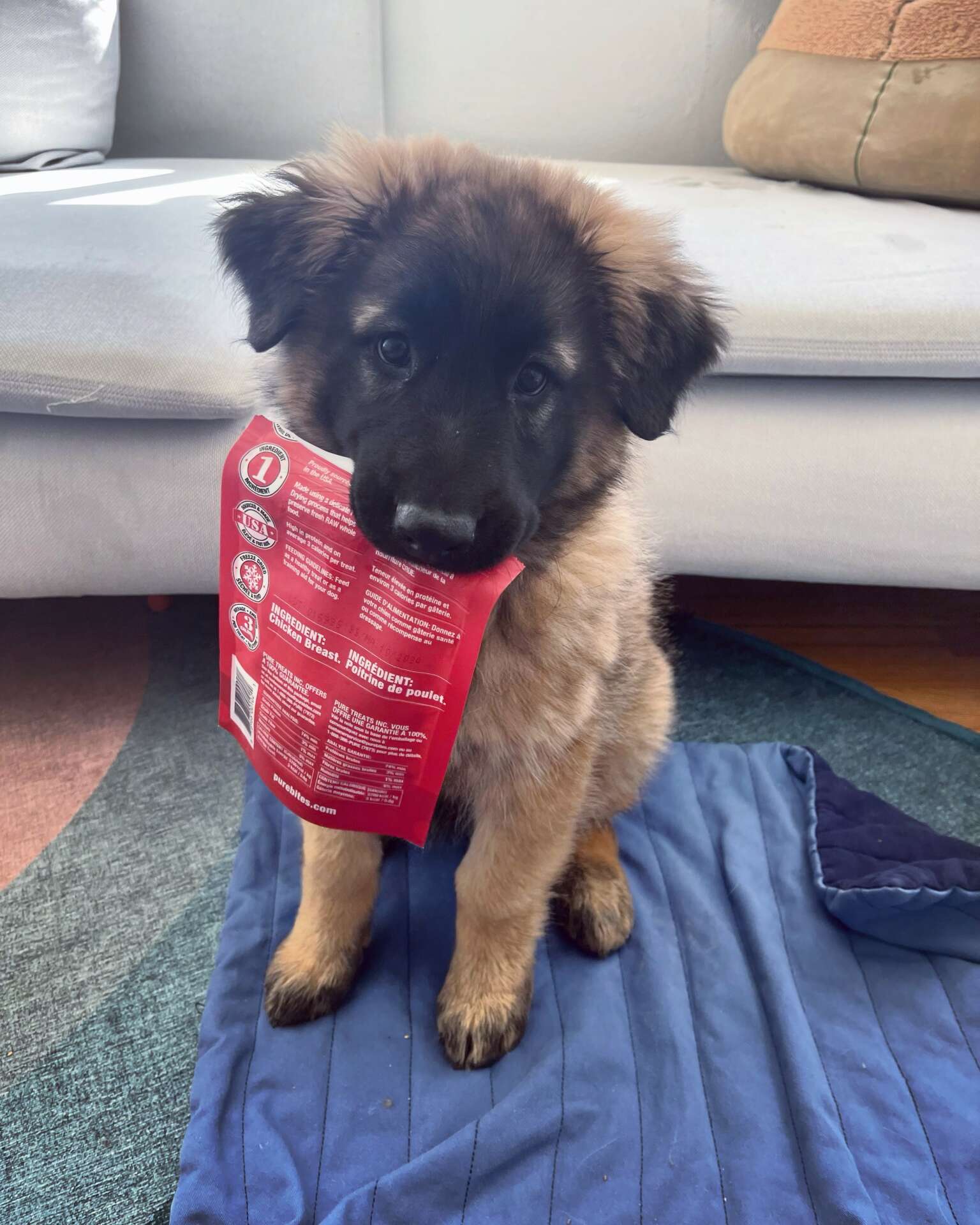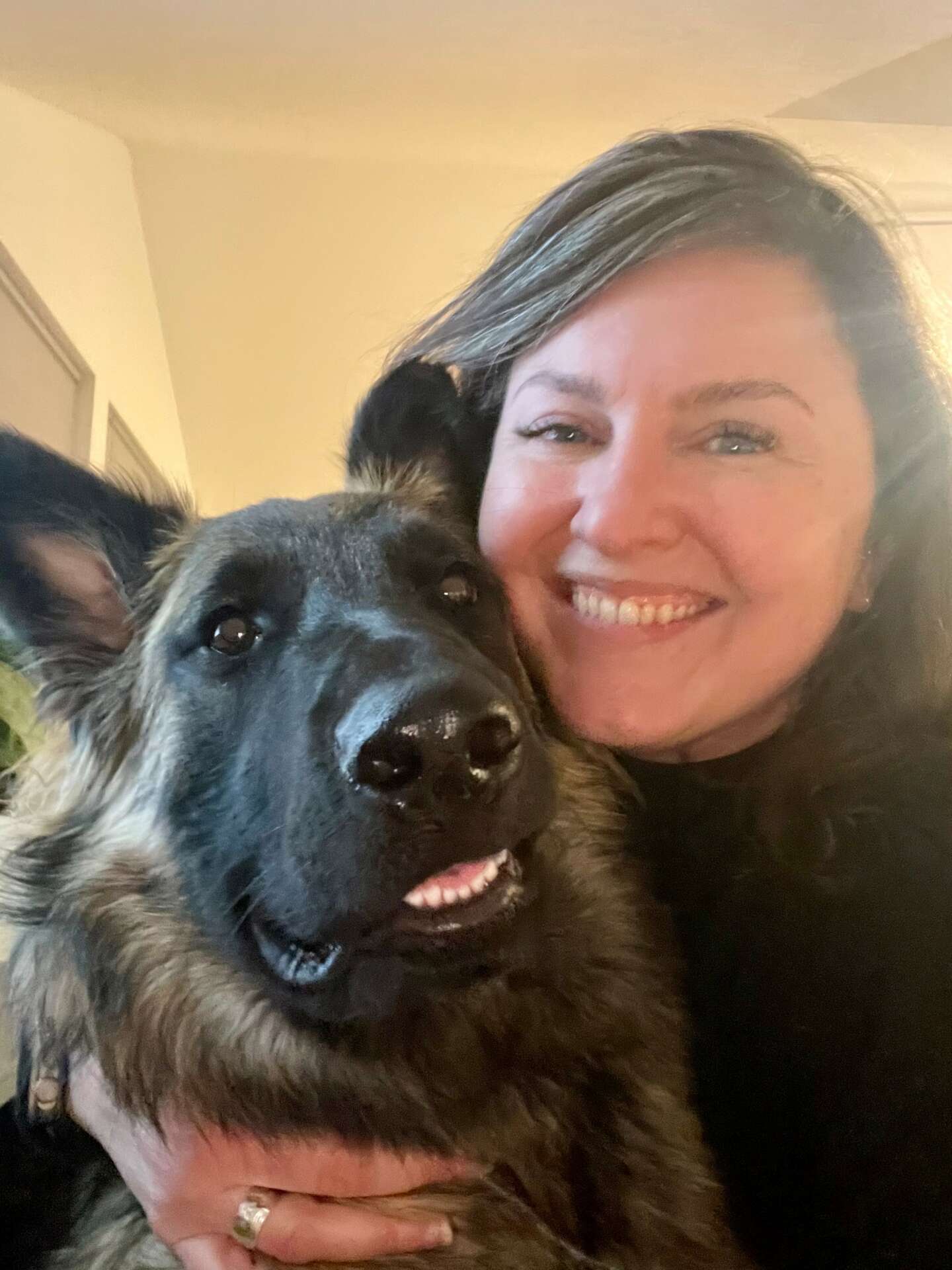We recently connected with Ursa Acree and have shared our conversation below.
Alright, Ursa thanks for taking the time to share your stories and insights with us today. Can you share a story with us from back when you were an intern or apprentice? Maybe it’s a story that illustrates an important lesson you learned or maybe it’s a just a story that makes you laugh (or cry)?
Dog training is a field that is simultaneously easy and hard to get into. It’s easy because there’s no legal licensing requirement – anyone can say they are a trainer, put up a website and charge money to train people’s dogs. Which is pretty wild when you think about how almost any other skilled professional – plumbers, stylists, even interior designers – have to have a license to provide services. But not dog training!
At the same time, it can be really difficult to get started because there’s no “standard” path. We do have some nationally and internationally recognized training schools, but there are also a lot of private programs thrown together by random trainers; online courses, seminars, webinars, and books that purport to be able to “train trainers.” It can be so hard to know where to begin or even what’s legitimate. And many trainers are hesitant to take new trainers under their wing because it’s a lot of work to help grow and develop a new trainer.
I was very fortunate to find my way into the field at a young age, and completely by accident. While contemplating what I wanted to about college, I adopted a puppy – my first dog who was “mine” as an adult, not a family dog. I am an analytical person and a researcher by nature, so I immediately started reading everything I could about how to train him, as well as signing up for puppy training classes with a local trainer.
By chance one afternoon I ran into the trainer outside of class, and she told me she had been wanting to contact me because she thought I’d make a good trainer, and asked if I’d be interested in apprenticing with her. It sounded fun, so I agreed! And my career was born, back in 2001.
I was so fortunate to be able to learn alongside a more skilled, experienced professional who was willing to guide me to the right resources and learning opportunities – something that is rare and invaluable in our field. I still use many of the training skills and analogies that she taught me in coaching my current clients over two decades later – some things that I could never have learned from a book or webinar.
The experience of apprenticing with a senior trainer shaped my career and who I am as a trainer, and I have always been really passionate about “paying it forward.” Because there are lots of programs that help trainers gain the knowledge they need, but not many that provide hands-on experience, it has been one of my greatest professional goals to create a program for trainers to do just that. During my time at Behavior Vets I’ve been able to create a Practicum program that allows trainers to shadow our incredible team and gain real-time hands on experience with the difficult and complex cases we see. It has made me incredibly proud to be able to provide other trainers with the same kind of opportunity that helped me start a lifelong career helping people and dogs.


Ursa, before we move on to more of these sorts of questions, can you take some time to bring our readers up to speed on you and what you do?
I am the Director of Behavior Services and a aCertified Behavior Consultant for Behavior Vets, a Veterinary Behavior Practice that serves people whose pets are experiencing challenging, severe, or complex behavior issues. We are a combined team of Veterinary Behaviorists and Behavior consultants, and together we work with companion animals and their guardians to treat the physical and behavioral factors that are contributing to behavior problems. This is a fancy way of saying: we are a team of vets and trainers who specialize in behavior modification and treatment!
While we serve all species including cats, birds, rabbits, and horses, the majority of our patients are pet dogs. The relationship between a person and their dog is a very special one – we don’t call them “human’s best friend” for nothing. In fact, I would argue that no animal on earth has the same kind of relationship with us that dogs do – and that makes it even more challenging when there is a stressful or dangerous behavior issue. What I love about what I do is that it helps dogs and their people live happier, less stressful lives – as individuals, and as part of that unique canine-human partnership. It’s so fulfilling to see the quality of life and emotional welfare improved for both ends of the leash.
In my role as Director of the training department, I support our Behavior Consultants in their jobs, enabling them to support their clients, develop as a team, and grow professionally. I also do a lot of networking and outreach with the communities we work alongside – other veterinary practices, trainers, shelters, and rescues – so that we can magnify our influence and help more people and pets.
What sets us apart is our amazing team. We have some of the most creative, skilled and compassionate trainers and veterinarians I have ever had the pleasure of meeting, much less working with from day to day! It is truly incredible to work with a team that not only cares about helping animals, but shows deep and genuine compassion for helping the people who need us, too.
Training and knowledge matter of course, but beyond that what do you think matters most in terms of succeeding in your field?
There are a few things that I think people may not realize when they are considering a career in dog training. One is that you can be the world’s greatest, most skilled trainer, but if you don’t enjoy or aren’t skilled at working with people, you may not be as successful as you hope. Most of the pets we serve have a human (or several!) who takes care of them, and that human is an important part of the equation since they are the one who lives with the pet, pays for the training, and maintains what you ask them to do in between their sessions with you. Learning to be genuinely compassionate and curious about my client’s experiences and needs, and meet them where they are without judgement, has allowed me to develop trust and rapport with the clients I serve – and therefore, better help their dogs over time.
I also think it’s important to remember that we are a growing, changing field, and while much of what we do is based in research on human behavior modification techniques, we still have a lot to learn! Keeping an open mind to other perspectives, being eager to learn, and being willing to have good faith discussions with other trainers keeps you fresh, and helps move our industry forward.


We often hear about learning lessons – but just as important is unlearning lessons. Have you ever had to unlearn a lesson?
Good boundaries make good relationships! As a trainer, it is not uncommon to develop strong relationships with your clients (in fact, my best friend of over 15 years began as a client!) Trainers are also often people-pleasers by nature, and are passionate about helping animals. Sometimes this can lead to us allowing clients to test and even violate our boundaries, leading to burnout and compassion fatigue. Which of course affects our ability to help other clients. I have learned (the hard way) over the years to set firm but kind boundaries about how, when, and what kind of help I can offer. Trying to be everything to everyone led to me over-committing and letting down clients who I was attempting to help, because I ended up not having time to do all the things I’d promised. For anyone who struggles with setting boundaries because it feels harsh, I learned an invaluable approach: boundaries aren’t about the other person’s behavior, it’s about your behavior. A boundary isn’t saying “don’t call me after 7pm;” it’s saying “if you call after 7pm I will not answer.” Framing it this way has helped me become comfortable with kindly setting boundaries to keep myself sane, functioning at my best and able to show up in the way that I want to for my clients, team, and other important people in my life!
Contact Info:
- Website: www.behaviorvetsco.com
- Instagram: behavior_vets
- Facebook: https://www.facebook.com/VBCCO/
- Linkedin: https://www.linkedin.com/company/behavior-vets
Image Credits
Ursa Acree, Kimberly McRae, Bobby Jo Steeke


